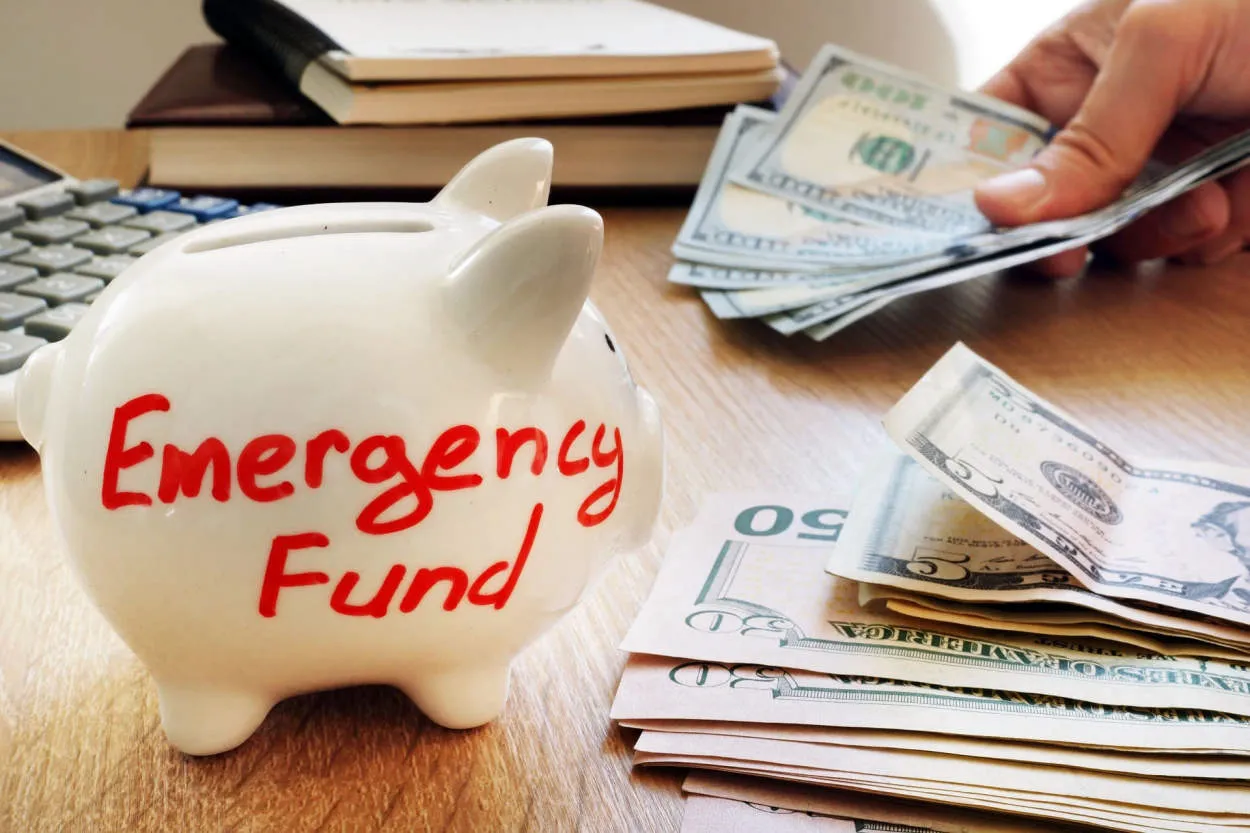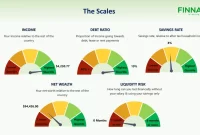An emergency fund is crucial for financial stability. This article explores the importance of having an emergency fund and provides essential tips on how to start one. Discover the peace of mind that comes with being prepared for unexpected expenses.
The Importance of Emergency Funds
An emergency fund is essential for financial stability and peace of mind. It serves as a safety net when unexpected expenses or financial crises arise. Building an emergency fund should be a priority for everyone, regardless of age or income level.
One of the main reasons to start an emergency fund is to handle unforeseen circumstances. Life is full of uncertainties, and emergencies can strike at any time. Whether it’s a medical emergency, job loss, car repair, or home repair, having a financial cushion can help cover these unexpected expenses without resorting to borrowing or going into debt.
Moreover, having an emergency fund can provide a sense of security and reduce stress. Knowing that you have funds set aside for emergencies can give you confidence and peace of mind. It allows you to face challenging situations without fear of financial ruin.
Another advantage of an emergency fund is its ability to prevent you from derailing your long-term financial goals. Without a safety net, a single unexpected expense can put you into debt or force you to dip into your savings meant for other purposes, such as retirement or purchasing a home. Having an emergency fund ensures that you stay on track with your financial plans.
Building an emergency fund requires discipline and commitment. Start by setting a realistic savings goal based on your monthly expenses. It’s recommended to aim for at least three to six months’ worth of living expenses as a target. Allocate a portion of your income specifically for the emergency fund and automate your savings if possible. Cut back on unnecessary expenses and avoid the temptation to use the funds for non-emergency purposes.
In conclusion, an emergency fund is an essential aspect of financial well-being. It provides a safety net for unexpected expenses, reduces stress, and safeguards your long-term financial goals. Building and maintaining an emergency fund should be a top financial priority for everyone.
How to Determine Your Emergency Fund Target
Building an emergency fund is an essential financial step that everyone should take. It provides a safety net for unforeseen expenses and gives you peace of mind during difficult times. To start your emergency fund journey, you need to determine a target amount that will adequately cover your needs. Here are some steps to help you calculate your emergency fund target:
Assess your monthly expenses
Begin by understanding your monthly expenses. Make a list of all your essential costs, such as rent or mortgage, utilities, groceries, transportation, and healthcare. Additionally, include any necessary debt payments.
Consider your financial situation
Take into account your personal circumstances, including your job security, dependents, and any potential sources of income during emergencies. If you have a stable income and fewer dependents, your emergency fund target may be lower compared to someone with an unpredictable job and more financial responsibilities.
Calculate the coverage period
Decide on the number of months you would like your emergency fund to cover. Financial experts recommend aiming for at least three to six months of expenses, while others suggest saving up to twelve months or more. Set a coverage period that aligns with your risk tolerance and industry outlook.
Factor in possible emergencies
Consider potential emergencies that might require you to dip into your fund. This could include medical emergencies, home repairs, car maintenance, or sudden job loss. Assess the likelihood and potential costs of these situations to determine the additional amount you should save. It’s better to overestimate rather than underestimate to ensure adequate financial protection.
Review and adjust periodically
As your financial situation evolves, make sure to review and adjust your emergency fund target accordingly. Life changes such as getting married, having children, changing jobs, or buying a house can impact your expenses and income. Regularly reassess your emergency fund to ensure it remains aligned with your current needs.
By following these steps, you can determine an appropriate target for your emergency fund. Remember, building an emergency fund takes time and dedication, but the peace of mind it provides is invaluable.
Ways to Save Money for an Emergency Fund
Building an emergency fund is crucial for financial stability. It provides a safety net in case unexpected expenses or job loss occurs. Here are some effective ways to save money for an emergency fund:
1. Set a Savings Goal
Start by determining the amount you want to save for your emergency fund. It is recommended to have at least three to six months’ worth of living expenses saved up.
2. Create a Budget
Track your income and expenses to identify areas where you can cut back. By creating a budget, you can allocate a certain portion of your income towards your emergency fund.
3. Cut Unnecessary Expenses
Review your spending habits and eliminate non-essential purchases. This can include dining out less frequently, reducing entertainment expenses, or canceling unused subscriptions.
4. Increase your Income
Consider taking on a part-time job or pursuing freelance opportunities to boost your income. The extra money you earn can be directed towards your emergency fund.
5. Automate Savings
Set up an automatic transfer from your checking account to a dedicated savings account each month. This way, you won’t forget to save and can gradually build your emergency fund over time.
6. Save Windfalls or Bonuses
If you receive unexpected or additional income like tax refunds or work bonuses, resist the urge to splurge. Instead, deposit these windfalls directly into your emergency fund.
7. Reduce Debt
High-interest debt can hinder your ability to save for an emergency fund. Prioritize paying off debts like credit cards or loans to free up more money for savings.
8. Stay Focused and Patient
Building an emergency fund takes time and discipline. Stay committed to your savings goal and resist the temptation to dip into the fund for non-emergency expenses.
By following these strategies, you can establish a solid emergency fund that will provide financial security and peace of mind.
Tips for Successfully Building Your Emergency Fund
Building an emergency fund is an essential part of financial planning. Having a solid emergency fund can provide you with peace of mind and protect you from unexpected financial shocks. Here are some tips to help you successfully build your emergency fund:
- Set a savings goal: Determine how much you want to save in your emergency fund. It is recommended to aim for at least three to six months’ worth of living expenses.
- Create a budget: Track your income and expenses to identify areas where you can cut back and save more money. Every penny counts!
- Automate your savings: Set up an automatic transfer from your checking account to your emergency fund. This way, you won’t forget to save and the money will accumulate over time.
- Cut unnecessary expenses: Review your monthly expenses and eliminate any non-essential items or services. Redirect that money towards your emergency fund.
- Boost your income: Consider taking up a side hustle or freelancing gig to generate extra income. Use the additional earnings to fast-track your emergency fund savings.
- Avoid using your emergency fund for non-emergencies: Resist the temptation to dip into your emergency fund for non-essential purchases. Stick to using it only for genuine emergencies, such as medical expenses or unexpected car repairs.
Remember, building an emergency fund requires discipline and patience. Start small if necessary, but be consistent with your savings efforts. Having a financial safety net will provide you with valuable security and financial stability.
Conclusion
Building an emergency fund is crucial for financial stability. It provides a safety net during unexpected situations, allowing individuals to weather financial storms without resorting to debt. By starting early and saving consistently, anyone can establish an emergency fund and achieve peace of mind.




